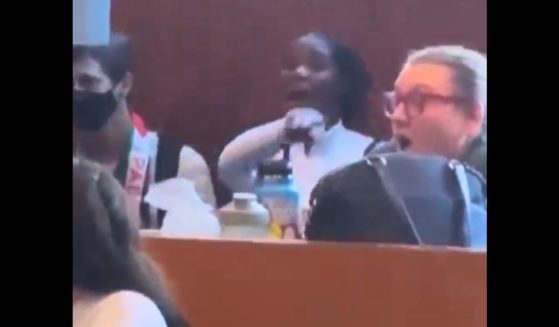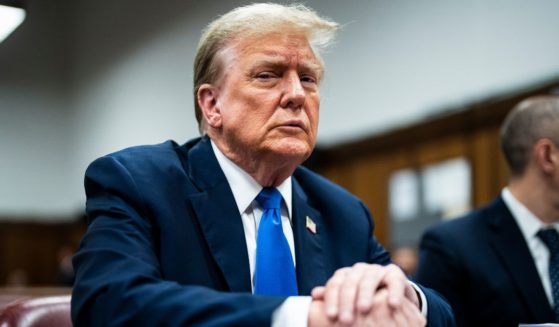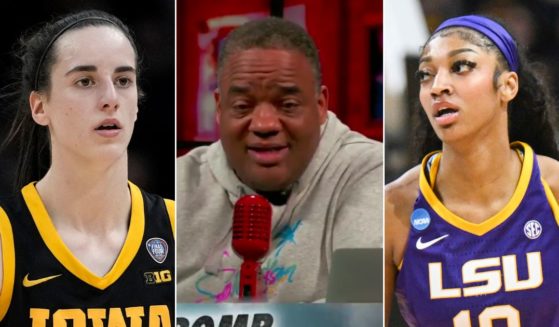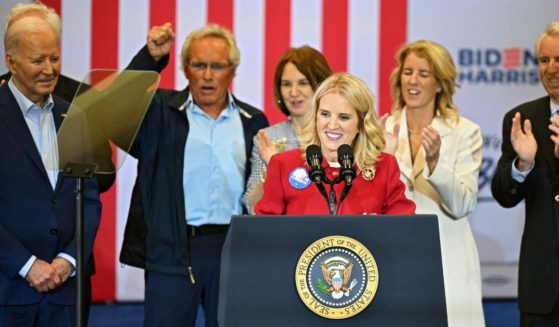Bombshell Investigation Reports NBA Ref Didn't Just Bet on, But Fixed Games
The integrity of a sporting event is at least in part determined by the quality of the officiating, and the moment fans believe that a sport is rigged, even if the games are completely fair, the league has all the credibility of WWE.
And while the NBA has taken huge steps over the past decade to repair its image through the @NBAOfficial Twitter account and other transparency measures, the stain of Tim Donaghy’s betting scandal from the dark ages of the sport in the early to mid-aughts continues to haunt the league, leading to accusations of match-fixing every time a referee blows a call.
A new, bombshell report from ESPN shows that stain might be darker than was even suspected when the scandal broke.
According to ESPN, Donaghy cut a deal with a gambler named Jimmy Battista, with a simple proposition.
In games in which Donaghy was the referee, he’d earn a $2,000 bribe if the team on which Battista bet covered the point spread. If the pick went wrong, Donaghy would get nothing.
The picks did not often go wrong; Battista won 88 percent of the time.
The underlying logic is simple. Unless a game is a complete and utter blowout, in which case referees can do nothing to meaningfully affect the outcome, a foul call here, a non-call there, and referees can easily influence the number of free throws each team gets in the game.
And in a world where Vegas usually gets pretty close when setting the betting lines to the actual outcomes of the games, even two free throws — effectively handing an average of 1.5 points to one team given the average NBA squad hits the charity toss about three-quarters of the time — can be enough to swing a bet.
According to the report, Battista and Donaghy went way back. They were childhood friends, fellow veterans of the ruler-to-the-wrist world of Catholic high school in Delaware County, Pennsylvania, and by the time Donaghy was plying his trade as an NBA ref, he and Battista had known each other for 25 years.
Another old friend from the same neighborhood, Tommy Martino, acted as the bag man, according to ESPN. He’d take a call from Donaghy on an untraceable “burner” cell phone about which game Donaghy was working and how the ref intended to influence the game, then he’d pass along that information to Battista, who would line up his cadre of gamblers and give them the hot tip.
And since Donaghy and Battista didn’t speak directly, it would be a lot harder for law enforcement to pin the scheme down.
By the time the game tipped off, Battista would have a million bucks’ worth of his “investors”’ money down on the contest.
The NBA did its own investigation and concluded that Donaghy acted alone, a rogue ref whose sole involvement in his match-fixing was to bet on the games himself. The credibility of those results is now in serious question.
The ESPN report lays it out bluntly:
“For 11 years, the official plotline has been that Donaghy was a rogue, gambling-addicted ref who made some bets on his own games — and nothing more. The NBA conducted its own investigation and concluded that Donaghy, in fact, did not fix games. But for many in and around the league, suspicions have remained that the full story has not been told, that what really happened has been suppressed.”
The story is in the news again in part because broad federal legalization of sports betting — in point of fact, the Supreme Court’s striking down of the 1992 federal law enjoining states other than Nevada from legalizing sports betting within their borders — has brought up the age-old question of whether the increased transparency that regulation brings offsets the massive crime of opportunity that is regular access to sports betting.
And if legalized betting truly reduced sports corruption, there wouldn’t have been such massive match-fixing scandals in European soccer, where betting is as much a part of the sporting culture there as Spanish-speaking announcers taking four minutes to yell out the word “goal”.
Donaghy himself had a well-documented gambling problem.
In 2002, according to ESPN, he and his friend Jack Concannon — another product of that same Catholic high school that probably should’ve just put a drive-thru in the confession booth for all the sinning that was going on there — took to betting on pro and college football.
This was a violation of the NBA’s code of referee ethics, but Donaghy, according to ESPN, rationalized it easily enough to himself, since it wasn’t basketball and, in Donaghy’s words, “S—, everyone on the staff bets. I was like a pot smoker moving up to cocaine.”
And sure enough, it wasn’t long before Donaghy and Concannon took that last moral step off the cliff and turned to NBA betting in 2003.
That’s not a typo. As ESPN recounts, the narrative around the Donaghy scandal has always been that it was for one season in 2007, but the evidence suggests that it was more like four or five seasons in which a referee, entrusted with the integrity of the competition, had skin in the game and rigged the final score.
And while that distinction still needs to be made between the point spread and the actual outcome of the game, anyone who watches the NBA regularly knows that teams can see their momentum brought to a halt as the referees, calling ticky-tack fouls, get under the players’ skin and even affect the way defense is played.
After all, if a player is called for a spurious foul, he is one violation closer to the six required to disqualify him. A player in foul trouble will play defense differently from one who has zero or one foul to his name in the fourth quarter.
And that absolutely can affect who wins and who loses.
The time was ripe for Donaghy to do his dirty work in the early aughts. After all, before the dot-com boom, the dirty business of gambling had to be carried out locally, and the FBI had done a pretty solid job of busting up organized crime in the 1970s and ’80s.
But the rise of the online sportsbook — before the game was quashed in 2006 by the Unlawful Internet Gambling Enforcement Act — meant that oversight was no longer the province of American law enforcement and instead became the responsibility of nations that were more than happy to look the other way in exchange for a cut of the action, countries like Curacao and Costa Rica and the Cayman Islands.
And as ESPN reported, that let Donaghy have an outlet not only for his own betting but for Battista’s scheme as well.
It was a guy named Rhino Ruggieri who figured it out, ESPN recounted. He ran a book in Curacao called PlayASAP, and he had access to all the wagers coming in.
And when he saw Concannon and Donaghy printing money with their bets, he alerted the rest of his own crew to jump into that game.
They started betting to mirror Donaghy’s bets—big bets in the high five or low six figures, just small enough not to blow the whistle on themselves but large enough that the profits were real money.
And sure enough, the evidence was lying in plain sight from the very beginning—all one would have needed to do to see the fix was in was study the box scores from each of Donaghy’s games and ask the question of why every single one of them had a disparity of fouls called unexplained by the footage of the actual game?
Which is how eventually the gamblers and the referee got directly into contact, and that’s where the “it happened in 2007” narrative got started, the ESPN report shows.
The NBA is going to have to figure out what to do with this information. They’re going to have to figure out a way to assuage the public that any game with a foul or free\-throw attempt differential is due to the commission (or not) of actual fouls and not a referee pushing the spread by a point and a half every time he blows his whistle.
The social media outreach is a nice step, but any time Donaghy’s in the news, NBA Commissioner Adam Silver’s blood pressure has got to go up by a few ticks.
The funny thing is that the NBA’s own denial of what was going on — “you can’t fix games,” the official company line said — only enabled the practice, since it’s easier to put one over on someone who refuses to accept reality.
Any fool could see it in the box score. Anyone who watched the games Donaghy sometimes brazenly influenced with his whistle could tell something was amiss.
But the league looked the other way.
ESPN ran the numbers from 40 games Donaghy refereed in the 2006-07 season that seemed to be connected to the gambling syndicate. They determined that the odds of Donaghy’s pattern of calls happening randomly were 6,155 to 1 against.
So it’s clear that something was up.
Tim Donaghy is out of the league now, his name synonymous with the worst days of the NBA’s dark ages, and the league now knows just how dangerous a crooked referee can be not only to the games but to the perception of the sport among fans.
But the more we learn, the worse it looks for the NBA. It’s going to take time to fully earn the trust of the public again.
Truth and Accuracy
We are committed to truth and accuracy in all of our journalism. Read our editorial standards.











